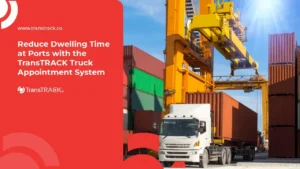How to Overcome Car Brake Failure in Manual and Matic Cars?
Posted on November 28, 2023 by Nur Wachda Mihmidati

Car brake failure occur when a vehicle’s brake system is not functioning properly, resulting in difficulty or inability to stop the vehicle. This can be caused by a variety of factors, such as brake component wear, hydraulic system leaks, brake mechanism failure, or problems with the electronic system (in modern vehicles). TransTRACK will discuss how to fix brake failure in your vehicle. Check out the following article!
Definition of Car Brake Failure
Brake failure is a serious problem that must be addressed immediately, as it can lead to potentially fatal accidents. Some signs of brake failure that need to be considered include:
- The brake lever is difficult to press or feels unresponsive
- A whirring or clattering sound when applying the brakes
- The brake pedal feels mushy or must be pressed deeper than usual to produce the desired speed reduction
- Brake system indicator light illuminates on the vehicle dashboard
- Strange odor or smoke coming from the brake system
If you experience any of the above signs, stop the vehicle immediately and have the brake system checked as soon as possible. Blown brakes can cause serious accidents, so timely repairs are essential to maintain safe driving.
What Causes Car Brake Failure?
There are many causes of problems with the car brake system, here are some possible causes of brake failure in a car:
Hydraulic system leak
Brakes in modern cars usually use a hydraulic system to transfer brake pressure from the brake lever to the brake system. If a leak occurs in the hydraulic system, the pressure in the brake system may decrease and cause brake performance to decrease.
Leak in the brake tube
The brake tube on a car is made of metal and is connected to the hydraulic system. If the brake tube leaks or breaks, brake fluid can escape and cause brake failure.
Leak in the brake hose
Brake hoses connect the hydraulic system to the brake calipers or brake drums. If there is a leak in the brake hose, the hydraulic pressure in the brake system can be reduced, resulting in decreased brake performance.
Brake lining wear
Brake lining is a component of the brake system that is used to generate friction on the rotor or drum. If the brake lining is worn out, the brake performance will decrease, and can cause brake failure.
Problems with the ABS (Anti-lock Braking System) system
The ABS system is used to prevent the tires from locking up during braking. If the ABS system is damaged, it can lead to brake failure as the braking becomes ineffective.
Problems with the parking brake system
The parking brake system on a car can cause the brakes to fail if it is damaged. The parking brake system is usually separate from the main brake system, but if it is not working properly, it can reduce the brake capability of the car.
In any situation, problems with the brake system must be fixed immediately in order to maintain safe driving. If you suspect a problem with your car’s brake system, you should immediately take the vehicle to a repair shop for inspection and repair.
How to Fix a Blown Brake in a Car
Blown brakes in a car can lead to serious accident risks, so it is important to fix the problem immediately. The following are some ways to overcome brake failure in a car:
Overcoming Car Brake Failure on Matic Cars
How to overcome brake failure in an automatic car is actually not much different from how to overcome brake failure in a manual car. However, since automatic cars are not equipped with a clutch, you need to pay attention to some additional things. Here are some ways to overcome brake failure in an automatic car:
Use the handbrake
If the car is equipped with a handbrake, use the handbrake to stop the vehicle slowly. The handbrake can help control the vehicle safely when the main brake system is not working.
Reduce speed slowly
If you feel that the brake system is not working, reduce the vehicle speed slowly by using the transmission or reducing the gas. Do this carefully and slowly to avoid an accident.
Press the brake pedal slowly
If the brake system is still partially functional, press the brake pedal slowly with consistent intensity. Avoid pressing the brake pedal too hard or pulling the brake lever excessively, as this may cause the brakes to lock up.
Shift into neutral gear
If you feel that you cannot control the vehicle well, shift the transmission into neutral gear to stop the vehicle slowly.
Do not turn off the engine
Do not try to turn off the engine while the vehicle is still moving. A dead engine will make the steering system and brake system heavier, making the vehicle difficult to control.
Take the vehicle to a repair shop
Once you have managed to stop the vehicle safely, immediately take the vehicle to the nearest garage to have the brake system checked and repaired. Do not attempt to drive a vehicle with a damaged brake system, as this can be very dangerous.
It is important to always perform regular maintenance on the brake system of an automatic car, including the replacement of worn or leaking brake components. Make sure the brake system is functioning properly before starting a trip. If you suspect a problem with the brake system of an automatic car, immediately take the vehicle to a repair shop for inspection and repair.
Overcoming Car Brake Failure on Manual Cars
If you experience brake failure in a manual car, it is important to fix the problem immediately to prevent accidents. Here are some ways to deal with brake failure in a manual car:
Don’t panic
If you notice that your vehicle’s brakes are not working, don’t panic and stay calm. Avoid pressing the brake pedal too hard or pulling the brake lever excessively, as this can cause the brakes to lock up.
Use the handbrake
If the car is equipped with a handbrake, use the handbrake to stop the vehicle slowly. The handbrake can help control the vehicle safely when the main brake system is not working.
Reduce speed slowly
If you feel that the brake system is not working, reduce the vehicle speed slowly by using the transmission or reducing the gas. Do this carefully and slowly to avoid an accident.
Press the brake pedal slowly
If the brake system is still partially functional, press the brake pedal slowly with consistent intensity. Avoid pressing the brake pedal too hard or pulling the brake lever excessively, as this could cause the brakes to lock up.
Use the engine brake
If you are on a downhill road, use the engine brake by reducing the transmission gear to a lower gear. This will help reduce the vehicle speed slowly without having to press the brake pedal too often.
Shift into neutral gear
If you feel that you cannot control the vehicle well, shift the transmission into neutral gear to stop the vehicle slowly.
Do not turn off the engine
Do not try to turn off the engine while the vehicle is still moving. A dead engine will make the steering system and brake system heavier, making the vehicle difficult to control.
Take the vehicle to a repair shop
Once you have managed to stop the vehicle safely, immediately take the vehicle to the nearest garage to have the brake system checked and repaired. Do not attempt to drive a vehicle with a damaged brake system, as this can be very dangerous.
Make sure to always perform regular maintenance on your manual car brake system, including replacing worn or leaking brake components. Make sure the brake system is functioning properly before starting a trip. If you suspect a problem with the brake system of a manual car, immediately take the vehicle to a repair shop for inspection and repair.
This is an explanation of brake failure in cars and some ways to solve the problem, both in automatic and manual cars. Experiencing brake failure in a car can greatly endanger the safety of the driver and passengers, so it is important to always pay attention to the condition of the car’s brake system and carry out regular maintenance.
If you are still confused about how to solve brake failure in your vehicle, you can also use the Vehicle Maintenance System from TransTRACK which will assist you in overcoming any problems with your engine. Take your company’s operations to the next level, extend the life of your vehicles and make sure your vehicles are always safe and ready to use. Manage vehicle, inventory and mechanic repair and maintenance schedules and costs with TransTRACK!
Topic :
 Bahasa Indonesia
Bahasa Indonesia









